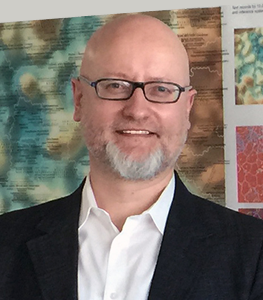GIScience Lecture
There's a Space For That!
Spatial Intelligence for Health and Beyond

Speaker: Professor André Skupin
Center for Information Convergence and Strategy
Department of Geography
San Diego State University
Wednesday, April 17, 2019
3:30 PM @ 1022 HN
No RSVP Required
The relevance of spatial thinking and geographic techniques for the medical domain extends far beyond the traditional bounds of using GIS and spatial analysis to investigate public health phenomena in geographic space. With some imagination, medical concepts and practices can be seen as simultaneously existing in a multitude of different spaces. Once such an overarching spatial viewpoint is in place, health data can be transformed into engaging artifacts that support medical research, education, and practice. For example, medical records generated by intensive care units could be turned into nuanced representations of patients' health status. The written notes of medical professionals – from surgeons to nurses and radiologists – can be a rich source of insight, not only with respect to individual patients, but in surveying and monitoring the medical ecosystem. Meanwhile, natural language processing and machine learning can be used to organize biomedical research results into coherent knowledge structures. The presentation will highlight several projects that exemplify a spatial intelligence approach to health and other domains.
Biography. André Skupin is a Professor of Geography and the Founder and Co-Director of the Center for Information Convergence and Strategy (CICS) at San Diego State University. He is vice chair and co-host of Left of Boom, the annual conference on proactive threat mitigation strategies. Dr. Skupin serves as Associate Director of the Center for Data Analytics and Intelligence (CENDAI) at the Czech University of Life Sciences in Prague and Associate Director of the Center for Entrepreneurship and Innovation (CEI) at the University of Dubai. He combines a classic cartographic education with long-standing interests in the application of data visualization and analytics in diverse domains, from biomedicine to finance, demography, and criminology. He has been engaged in the visualization of knowledge spaces for more than two decades, combining traditionally disparate approaches from natural language processing, machine learning, and cartography. These efforts have been funded by diverse sponsors, including the White House Office of National Drug Control Policy, National Science Foundation, and National Institutes of Health. Dr. Skupin is co-inventor of several patent-pending technologies involving ontologies and text mining for knowledge engineering.
